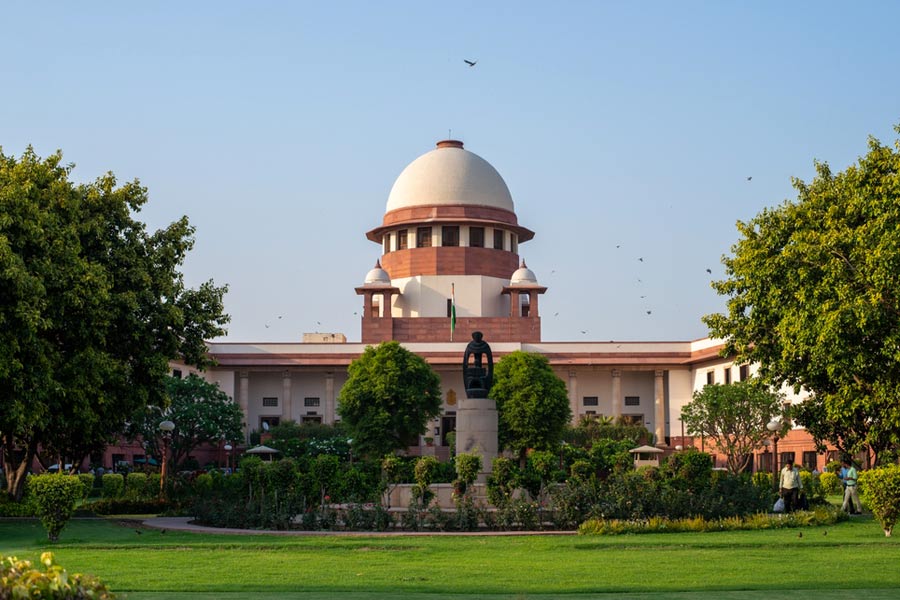The Supreme Court on Thursday directed the Election Commission to furnish data on which political parties had received how much donation through the electoral bonds scheme till September 30, while saying the scheme suffered from “serious deficiencies” and “opacity”.
However, the five-judge constitution bench made it clear that removing the deficiencies was the job of the legislature and that the court “will not step into that arena”.
The bench asked Amit Sharma, counsel for the commission, to furnish the information sought in sealed covers within two weeks.
The directions are significant because no official data has so far been available either about the scheme’s donors or the recipient political parties.
Introduced in 2018, the scheme allows the donors to remain anonymous.
Petitioners led by the Association for Democratic Rights (ADR) have challenged the scheme’s constitutionality, arguing it encourages donors with questionable credentials to make contributions to ruling parties’ coffers in exchange for favours. The ADR has alleged the ruling BJP has been the biggest beneficiary.
After three days of hearings, the bench of Chief Justice D.Y. Chandrachud and Justices Sanjiv Khanna, B.R. Gavai, J.B. Pardiwala and Manoj Misra reserved its verdict on Thursday.
The court expressed displeasure at the poll panel’s conduct, underlining that a three-judge bench headed by then Chief Justice Ranjan Gogoi had sought the same details way back in April 2019. After Covid and other issues slowed the case, it was recently transferred to a five-judge bench.
Justice Khanna said the poll panel should have on its own placed the latest data before the constitution bench instead of the court having to pass a fresh directive.
The bench expressed concern that the electoral bonds scheme places no cap on the volume of donations, unlike the previous policy that had a ceiling --- 7.5 per cent of the net profit earned by a company in the preceding three years.
“Would that be valid if a company were to donate even 100 per cent of its revenue? Is that guided by altruistic motives?” the bench asked.
Solicitor-general Tushar Mehta, who appeared for the Centre along with attorney-general R. Venkataramani, agreed that “in some cases, it may be quid pro quo”.
“But in most cases people donate for the kind of government they want,” he said.
Justice Chandrachud said: “The point is, we do not want to go back to a cash-only system. All we are saying (is), do it in a proportionate, tailor-made system which overcomes the serious deficiencies of this electoral bonds system.”
Earlier, donations were done mostly in cash whereas the current scheme involves the purchase of electoral bonds via bank channels – a point the Centre has highlighted to claim the bonds promote tax compliance.
Justice Khanna asked: “Why not make it (donations) open? As it is, everyone knows (the donor and recipients). The only person who is deprived is the voter.”
The bench made several suggestions for the Centre to consider:
◙ Reduce the cash element in the electoral process.
◙ Encourage the use of authorised banking channels.
◙ Incentivise the use of banking channels by the donors and recipient political parties.
◙ Let the scheme not legitimise kickbacks.
“You can still devise a system which balances out in a proportional way. How it is to be done is for you to decide. We will not step into that arena, that is not part of our function,” Justice Chandrachud said.
“Of course, the balance has to be drawn by the legislature and by the executive, not by us. We are quite conscious of that.”











